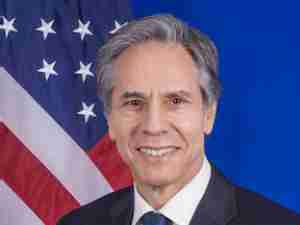"I hope that we can reach an agreement on secure trade, which is economically very important," European Union Trade Commissioner Karel De Gucht told Reuters on the eve of the U.S.-EU Transatlantic Economic Council (TEC) meeting.
"It would make away with a lot of red tape and it could also make away with the 100-percent container control legislation in the U.S.," De Gucht said.
Congress passed legislation in 2007 requiring by mid-2012 that all ocean-borne cargo headed to the United States be screened for possible security threats.
The European Union and other trading partners have complained that the U.S. law is costly and inefficient and contend there are better ways to achieve the same objective.
US Secretary of Homeland Security Janet Napolitano has also questioned the law's practicality and pledged to ask Congress to delay its implementation.
"We see (the expected secure trade agreement) as a major argument in terms of postponing it," De Gucht said.
It would recognize cargo security programs in the United States and the EU as essentially equivalent so a cargo deemed secure by one jurisdiction could be easily unloaded in the other, an EU official added.
De Gucht said he also expected the United States and the EU to announce progress on Tuesday in talks on electric car trade and to launch new discussions aimed at preventing trade barriers in nano-technology and cloud computing.
FUTURE US-EU TRADE TALKS
The TEC meeting follows a U.S.-EU summit meeting on Monday at the White House, where the two sides said they would establish a working group led by De Gucht and U.S. Trade Representative Ron Kirk to explore ways to expand trade.
That could include the negotiation of agreements to eliminate tariffs on manufactured goods and agriculture and to free up trade in the services sectors, De Gucht said.
"What I think we should try to do is put together a cocktail of measures that have a high probability" of achieving success, he said.
The United States and the EU have steered away from such talks in past, partly because of concern about taking energy from the Doha round of world trade talks and the difficulty of tackling farm subsidies and tariffs on both sides.
It remains to be seen whether the political resolve exists in Washington and Brussels to strike an ambitious and balanced deal, but "we'll look into everything and see where we can deliver," De Gucht said.
The two sides need to work quickly because an interim report is due in June, before the final set of recommendations goes to leaders late next year, he added.
Airbus Compliance Deadline
Meanwhile, the EU faces a deadline on Thursday to tell the United States how it intends to comply with a World Trade Organization ruling against billions of dollars of European government subsidies for aircraft giant Airbus .
De Gucht confirmed the EU would give Kirk's office its "compliance offer" on Dec. 1, but declined to say what steps Brussels will take to modify its so-called launch-aid loan programs to help Airbus develop new aircraft.
He also declined to say whether he thought the offer would satisfy Washington, which has the right to seek trade sanctions against the EU if it thinks Brussels is skirting the ruling.
"We'll see what the reaction is to it," De Gucht said.
The European Commission has had detailed discussions with the four EU member states -- Germany, France, Spain and Britain -- directly involved in the case and is making an "extensive" offer, De Gucht said.
The decision against Airbus is part of a bigger trade spat, which included an EU challenge of U.S. support for Boeing Co . The EU won on some significant points in that case, but it is still in the appeals stage. (Reuters)








